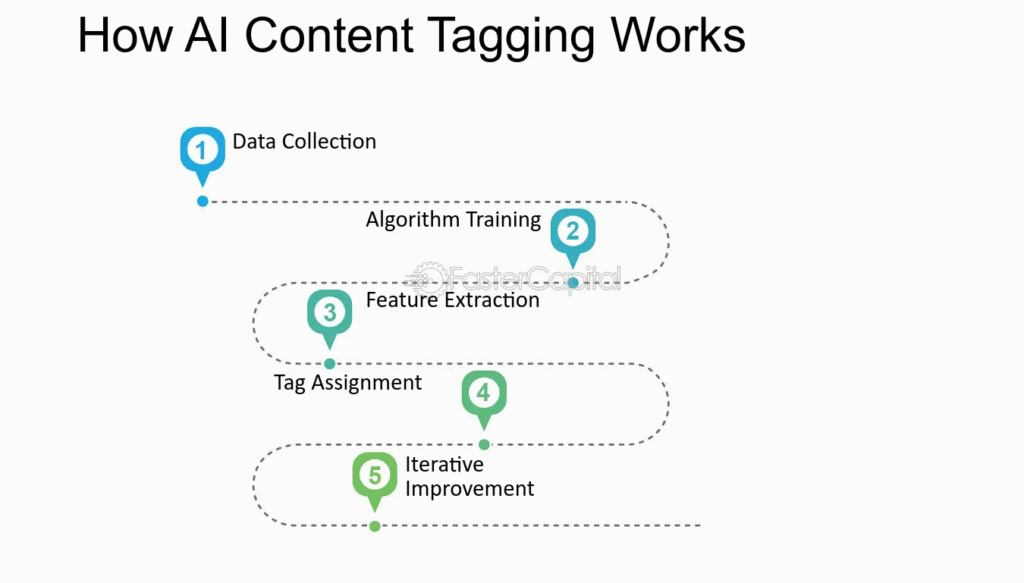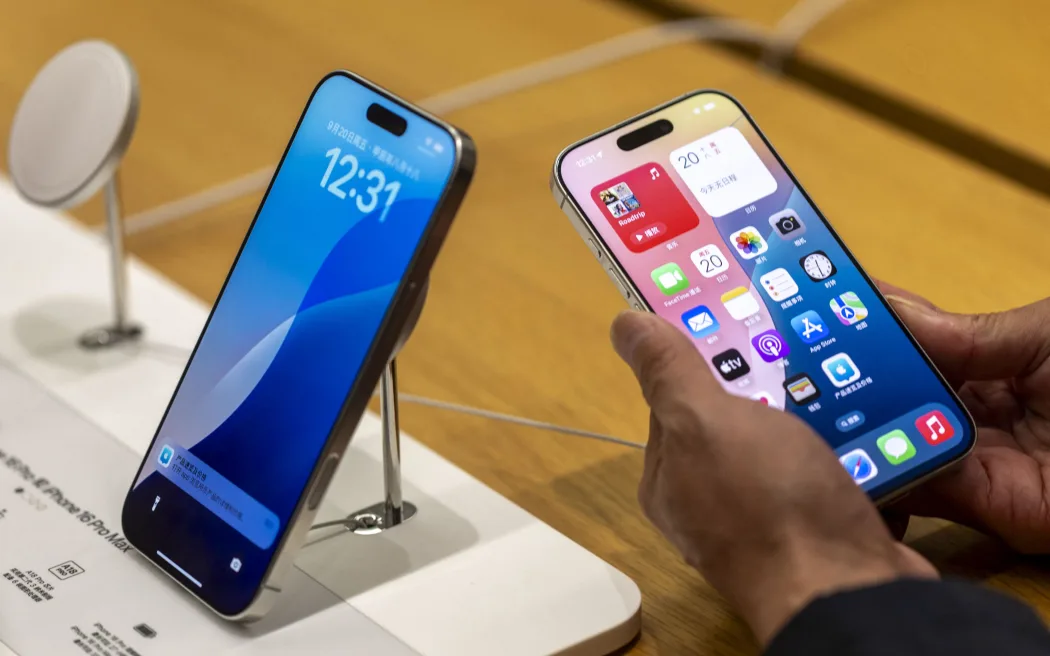June 15, 2025 | TechThrilled Newsroom
In a bold move to enhance app discovery and streamline user experience, Apple has launched AI-generated tags in beta on its App Store. This innovative feature is being rolled out selectively to iOS developers and a subset of users as part of Apple’s ongoing efforts to integrate artificial intelligence into core system functionalities. Designed to make search, categorization, and personalization more efficient, these AI-generated tags aim to redefine how users navigate the vast universe of over two million apps.
This development signals Apple’s continued push into applied AI, building on features introduced with iOS 18 and the broader integration of Apple Intelligence across the ecosystem. More than just a technical improvement, the AI tagging system represents a shift in how digital marketplaces understand context, intent, and content relevance.
What Are AI-Generated Tags in the App Store?
Traditionally, app tags in the App Store have been developer-defined keywords or editorial labels curated by Apple’s team. These tags help categorize apps under themes like “Fitness,” “Productivity,” “Photo Editing,” or “Games.” However, the manual nature of this system has long faced criticism for being inconsistent, outdated, or overly broad.
The new AI-generated tags, now in beta, are created using machine learning models that analyze app descriptions, reviews, in-app behavior, metadata, and user engagement signals. These models produce contextually accurate, dynamic labels that can better describe what an app does, how it’s used, and who it’s for.
For example, a wellness app might now be tagged not only as “Health & Fitness,” but also with labels like “Guided Meditation,” “Sleep Tracker,” “Breathing Techniques,” and “Stress Management” based on real user usage patterns and natural language analysis.
Key Features of the Beta Rollout
According to Apple’s developer documentation and early testers, the AI-generated tags feature includes several enhancements:
1. Dynamic and Evolving Tags
Unlike static tags, the AI-generated ones are continuously updated as an app evolves. If developers add a new feature like “AI image enhancement” to a photo editor, the tag may automatically appear without requiring manual intervention.
2. User-Personalized Discovery
Tags now play a deeper role in personalization. For example, users who frequently download fitness or productivity apps may begin seeing more nuanced tags like “HIIT Workouts,” “Pomodoro Timer,” or “Habit Tracking,” tailored to their past interactions.
3. Smarter Search Relevance
App Store search queries will benefit directly. A user typing “calm music for kids” will see results that reflect AI-generated tags such as “Toddler Relaxation,” “Music Therapy,” or “Bedtime Tunes,” even if those exact phrases were not present in the app title or description.
4. Developer Insights
Participating developers now receive tag suggestions during the submission or update process. These suggestions come with confidence scores and relevance metrics, offering guidance on optimizing their metadata without relying solely on guesswork.
How the AI Tagging System Works

Behind the scenes, Apple’s AI system uses natural language processing (NLP) and multi-modal embedding models that consider text, audio, and image content related to the app. These models are trained on vast anonymized datasets and fine-tuned using Apple’s on-device privacy principles.
Key technologies include:
- Transformer-based NLP models to understand context and intent.
- Reinforcement learning from human feedback (RLHF) to refine tag accuracy.
- Federated learning to train on user behavior without transmitting raw data.
Apple emphasizes that privacy remains paramount. AI tagging operates within the same privacy sandbox as other Apple Intelligence features, and developers cannot access user-specific tag histories.
Why This Matters for Developers
For developers, the benefits of AI-generated tags are both technical and commercial:
- Higher discoverability: Apps surface more frequently in relevant search results and curated lists.
- Reduced manual effort: Developers can rely on AI to identify niche but high-intent tags.
- Contextual promotion: Tags can unlock new marketing avenues, such as getting featured under trending themes.
- Fairer exposure: Smaller developers or indie app creators benefit from more precise classification that levels the playing field.
Some developers have already begun reporting improved download metrics and engagement after receiving optimized AI-generated tags, suggesting the technology is having an early impact.
User Impact: Easier, Smarter App Discovery
For end users, navigating the App Store is about to become far more intuitive and intelligent.
In the past, users often struggled with vague or mismatched search results. For example, searching “school planner” might return a mix of calendars, task managers, or irrelevant apps. With AI-generated tags, the same search yields results like “Student Organizer,” “Homework Tracker,” or “Class Schedule Manager”—directly addressing intent.
Apple is also testing user-facing tag filters where users can refine search results or browse categories using tag-based clusters. This mirrors the functionality of music or video recommendation systems but for mobile apps.
Strategic Implications: AI at the Core of Apple’s Ecosystem
This beta rollout fits within a larger vision Apple is steadily realizing—making AI invisible, intuitive, and deeply embedded into the user experience. Unlike competitors who position AI as a separate product, Apple’s approach integrates AI as a feature layer that augments existing services.
The App Store, being one of Apple’s most trafficked platforms and revenue generators, serves as a critical testing ground for this philosophy. AI-generated tags may soon become standard across Apple Music, Apple Books, Podcasts, and even Apple TV+, bringing smarter discovery to all corners of the Apple universe.
This rollout also comes shortly after the announcement of Apple Intelligence, the company’s system-wide AI framework built into iOS 18, iPadOS 18, and macOS Sequoia. Features like AI-generated summaries, mail prioritization, and smart notifications further reinforce Apple’s pivot to subtle, privacy-conscious AI.
Comparison with Other Platforms
Apple’s move places it ahead of some competitors in intelligent app discovery. While Google Play Store uses machine learning to recommend apps and categories, it still relies heavily on developer-defined tags. Amazon’s Appstore has limited tagging functionality, and Microsoft’s Windows Store offers minimal AI-assisted discovery.
However, Apple’s AI-generated tags differ in their tight privacy integration, on-device learning capabilities, and their role in improving both editorial and algorithmic curation.
Privacy Considerations and Developer Feedback
Apple has taken pains to highlight that no user-identifiable data is used in generating or assigning tags. Developers receive only aggregated tag performance metrics. Still, some developers are seeking more clarity on how tags influence rankings, fearing that opaque systems might favor apps with higher user base volumes or historical momentum.
Early feedback from the developer community has been cautiously optimistic. The broader consensus is that the new tags help surfacing long-tail apps, improve niche discoverability, and align well with user expectations. Apple is expected to gather feedback during the beta phase and refine tag models accordingly before the full public rollout, expected later this year.
What’s Next for the AI Tagging System?
While currently in beta, Apple is expected to:
- Expand AI tags to games, media apps, and accessibility tools.
- Roll out tag-based search refinement features to all users.
- Introduce localization, allowing AI tags to reflect region-specific preferences and terms.
- Incorporate AI tags into editorial features, such as “Today on the App Store” highlights and curated stories.
There is also speculation that Apple may extend AI-generated tags to Siri suggestions, Spotlight searches, and even app usage patterns, further blending contextual awareness into its ecosystem.
Conclusion: A Subtle but Powerful Shift in How We Use Apps
Apple’s launch of AI-generated tags in the App Store may seem like a technical update, but it represents a fundamental rethinking of how users find and interact with mobile applications. By using machine learning to improve classification, search, and discovery, Apple is setting a new standard for user experience in digital marketplaces.
For users, it means more relevant apps and fewer frustrating searches. For developers, it opens up smarter ways to reach their audience. And for Apple, it’s another step toward an AI-powered future that blends seamlessly into the devices we use every day.https://techthrilled.com
